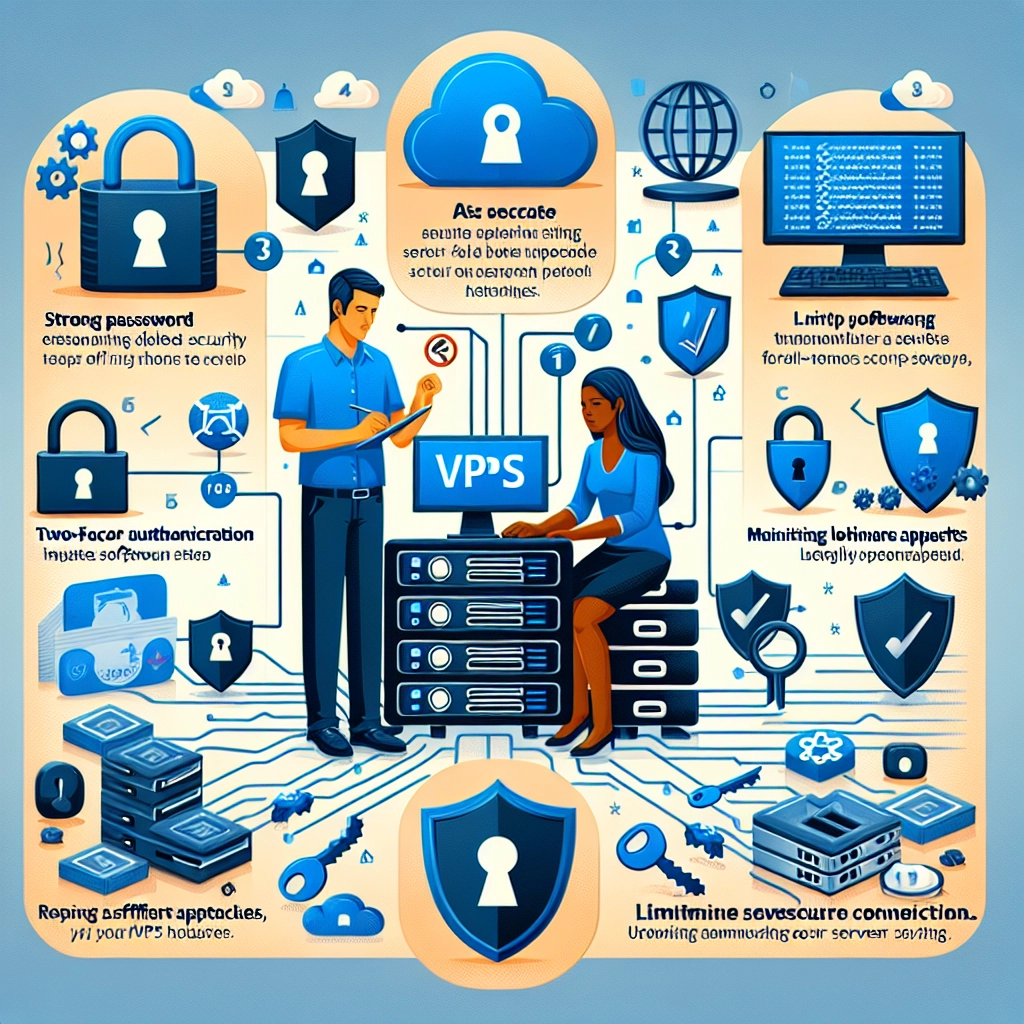Tips for Enhancing Security on Your VPS Hosting
If you’re running a website on a Virtual Private Server (VPS), you know that flexibility and control come with a downside: security risks. A VPS gives you more power than shared hosting, but with great power comes great responsibility! Enhancing the security of your VPS is not just a good idea; it’s a necessity. Let’s dive into some practical tips to help keep your data safe and sound.
Keep Your Software Updated
First and foremost, keep everything up to date. This goes beyond just the operating system; it includes your web server, database, and any applications you’re running. Software vulnerabilities are discovered regularly, and developers release patches to fix them. By keeping everything updated, you reduce the chances of exploitation. Many Linux distributions allow you to set up automatic updates, which can save you time and ensure you’re always running the most secure version.
Use Strong Passwords and SSH Keys
When it comes to passwords, forget “123456” or “password.” Use strong, complex passwords that include a mix of uppercase and lowercase letters, numbers, and special symbols. A password manager can help you generate and store these securely.
Additionally, consider using SSH keys instead of passwords for remote logins. SSH keys are a much more secure method of accessing your server than traditional passwords. They provide an added layer of security and require a bit of setup, but the effort is well worth it.
Secure Your Firewall
Every VPS hosting service usually comes with a built-in firewall. Make sure you configure it correctly to allow only the traffic you need. This might include whitelisting specific IP addresses, allowing only designated ports, or even blocking certain types of traffic. Windows users can take advantage of Windows Firewall, while Linux users often use tools like UFW or iptables. A well-configured firewall can prevent unauthorized access attempts.
Enable Two-Factor Authentication (2FA)
Two-factor authentication adds another layer of security by requiring you to provide two forms of identification. Most VPS hosting providers offer 2FA for access to their control panel, and enabling it can drastically reduce the chances of unauthorized access. Even if someone does manage to crack your password, they won’t be able to get into your account without the second factor.
Monitor User Activity
If you have multiple users accessing your VPS, monitoring their activity is crucial. Utilize tools that help you track logins and changes made to files. Many server environments come equipped with log analysis tools to help you understand what’s happening on your server. This way, you can be alerted to any unauthorized access attempts or suspicious activities.
Install Security Software
Consider installing additional security software tailored for servers. Antivirus programs, intrusion detection systems (IDS), and malware scanners can help identify and block threats before they escalate. Some popular options include Fail2ban (which can block repeated login attempts) and ClamAV (an antivirus software for Unix-like operating systems). Regular scans can help keep your server clean and secure.
Backup Regularly
No one wants to think about data loss, but it happens. Whether it’s a server malfunction, hacking attempt, or user error, it’s essential to have a robust backup plan in place. Schedule regular backups of your files and databases, and store them in a separate location for extra safety. Many hosting services offer backup solutions, but you can also opt for cloud storage services to diversify your backup strategy.
Be Aware of DDoS Attacks
Distributed Denial of Service (DDoS) attacks are on the rise, where multiple systems are used to flood your server with traffic, effectively taking it offline. Talk to your hosting provider about available DDoS protection solutions. Some VPS providers even come with built-in DDoS mitigation features that can help absorb malicious traffic spikes.
Use a VPN for Remote Access
If you frequently access your VPS remotely, using a Virtual Private Network (VPN) can provide a secure connection. A VPN encrypts your internet traffic, making it much harder for cybercriminals to intercept your data. It adds another layer of security, particularly when accessing your VPS over public Wi-Fi networks.
Stay Informed
Lastly, don’t forget to stay informed about the latest security trends and best practices. Cybersecurity is an ever-evolving field, and keeping your knowledge up-to-date can help you stay one step ahead of potential threats. Follow reliable tech blogs, join online communities, or take courses focused on VPS security.
By enhancing the security of your VPS hosting environment, you’re investing in the integrity of your data and the trust of your users. It takes time, diligence, and ongoing effort, but the peace of mind that comes from knowing you’ve secured your server is well worth it. Happy hosting!
Welcome to DediRock, your trusted partner in high-performance hosting solutions. At DediRock, we specialize in providing dedicated servers, VPS hosting, and cloud services tailored to meet the unique needs of businesses and individuals alike. Our mission is to deliver reliable, scalable, and secure hosting solutions that empower our clients to achieve their digital goals. With a commitment to exceptional customer support, cutting-edge technology, and robust infrastructure, DediRock stands out as a leader in the hosting industry. Join us and experience the difference that dedicated service and unwavering reliability can make for your online presence. Launch our website.

